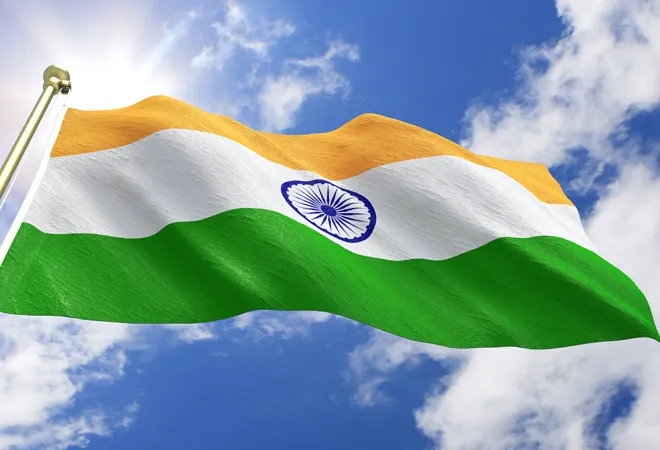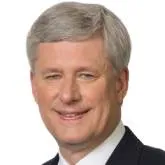
This piece is part of the series, India@75: Aspirations, Ambitions, and Approaches
Light illuminates; shadows define. Amidst the gathering clouds of global turbulence and disruption, India’s rise as a self-defined democratic power holds great promise for the world order.
Even before the worldwide trauma unleashed by the COVID-19 pandemic, globalisation and rapid advances in technology had already been reshaping societies across the globe. There is now more wealth and opportunity than ever before, but there is also growing agitation from globalisation’s uneven affects. Disruptions to economic norms and national identities have led to politics becoming more fragmented and polarised, while zero-sum behaviour by authoritarian regimes has weakened the rules-based order.
The pandemic has only strengthened the headwinds that the post-war international order was already struggling to manage. That a transatlantic consensus would provide replicable templates for governance around the world is no longer a popular assumption, not even in its Western core. These challenges do not undermine the fundamental strengths of the democratic capitalist model, which continues to provide prosperity, security and resilience, wherever it is fully embraced and thoughtfully applied. However, they do suggest that the model requires new champions.
Disruptions to economic norms and national identities have led to politics becoming more fragmented and polarised, while zero-sum behaviour by authoritarian regimes has weakened the rules-based order.
Few are as capable of or appropriate for occupying this mantle as India. For all its monumental challenges as a nation—its multiple divisions, its colonial past, its socialist legacy—the Republic of India stands as a tribute to the emancipatory potential of freedom and democracy. Indeed, the coming decades will be shaped in no small part by the choices India makes as it seeks to rise to its “great-power” potential. This journey is taking place amidst a shift in the centre of gravity of economic power from the Atlantic system to the Indo-Pacific region and during immense technological and political transformations.
India’s rise is also set against the backdrop of a bi-polar contest for global supremacy between China and the United States (US), along with the increasing decoupling of their economic models. Most emerging economies have sought to prioritise their own development in a multi-polar environment and to protect themselves from the fallout of this strategic competition. However, the world is increasingly being pushed towards a real choice: Free markets governed by the rule of law and democratic norms vs. a state-directed, neo-mercantilist model of trade, investment and debt. Countries will invariably gravitate towards a rules-based world of free nations or a hub-and-spokes global order with Beijing at its centre.
Indeed, the coming decades will be shaped in no small part by the choices India makes as it seeks to rise to its “great-power” potential.
India did not need Chinese aggression in Ladakh to demonstrate on which side of these choices it should fall. The country is, by its very nature, a deeply pluralistic society that will naturally resist any inclination to authoritarian governance. It is also an inherently entrepreneurial nation that has thrived when presented with the opportunities that democratic capitalism affords. Thus, as India emerges from its non-aligned legacy and becomes a real player in the international arena, its success will rest on the democratic model at home and appropriate partnerships abroad. The bold policy directions of Prime Minister Narendra Modi indicate a clear understanding of India’s growing importance in the world, its needs and its potential.
One of those needs is greater opportunities for the largest working-age population in the world. External Affairs Minister,
Dr. S. Jaishankar, has rightly highlighted that by 2030, India’s human capital will be a key feature of its diplomacy. Yet more than half of India’s workforce is still employed in the agricultural sector, which accounts for a mere 15 percent of the country’s gross domestic product. There is an urgent requirement for long-term structural realignment—a generational transformation—to prepare this diverse workforce for the new realities of the Fourth Industrial Revolution.
The bold policy directions of Prime Minister Narendra Modi indicate a clear understanding of India’s growing importance in the world, its needs and its potential.
Further, India will have to undertake substantial economic reforms to realise its income goals. Harnessing technology to overcome its rigid bureaucracy, robust federal engagement with state governments, more emphasis on the private sector, and better governance of state institutions will be essential moving forward. India’s recent policy innovations towards economic formalisation, such as the delivery of services through Aadhaar and the introduction of the GST (Goods and Services Tax), have been significant steps in the right direction. Early measures towards the privatisation of key sectors are encouraging. Necessary structural reform in agriculture is being debated. Additionally, India must scale what is already the world’s third-largest start-up ecosystem.
Finally, at a time when nations are reasserting the primacy of their own economic interests, an Indian agenda of economic dynamism and mutual benefit will need to be pursued at the international level. A well-articulated trade agenda is essential, which will advance India’s place in global supply chains and build confidence in the country as a destination for investment. It must avoid both the pitfalls of export-oriented protectionism and the re-colonisation of Indian sectors. Doing this right will not only make India a truly wealthy country, but also enhance its global leadership and provide the world with a stronger and more stable trading order.
A well-articulated trade agenda is essential, which will advance India’s place in global supply chains and build confidence in the country as a destination for investment.
India has already achieved a lot. Its 3,000-year-old civilisation has had wide cultural impacts on all of humanity. Modern India has put a lie to the notion that democratic governance and economic progress are incompatible with extreme social diversity and high initial levels of poverty. After Independence, India left behind the famines of the past. Since the 1990s, it has undertaken an economic transformation that is destined to achieve great heights. Now, should India make the right choices, it will discover the potential of helping to lead the world to greater prosperity and peace.
The views expressed above belong to the author(s). ORF research and analyses now available on Telegram! Click here to access our curated content — blogs, longforms and interviews.




 PREV
PREV


